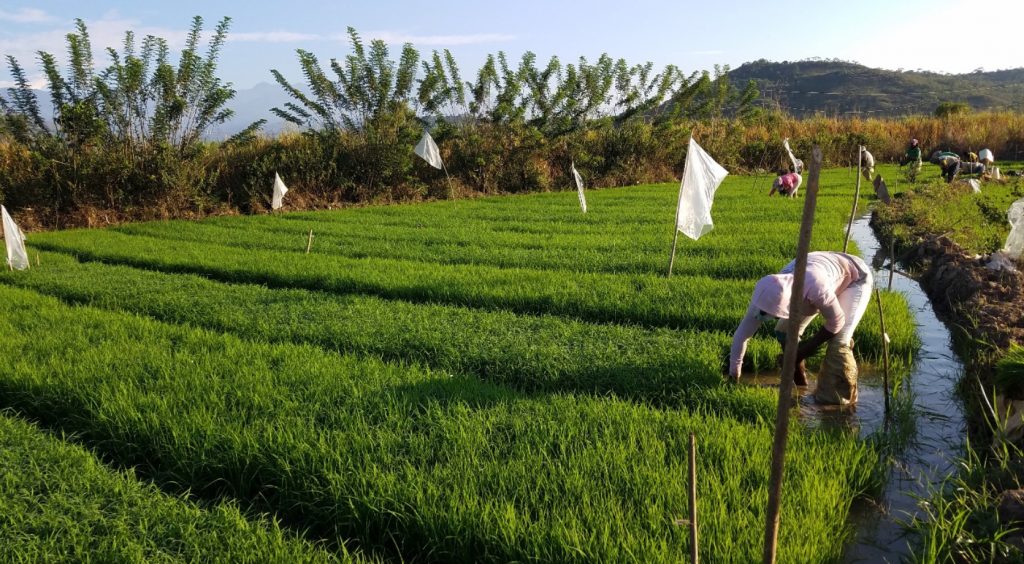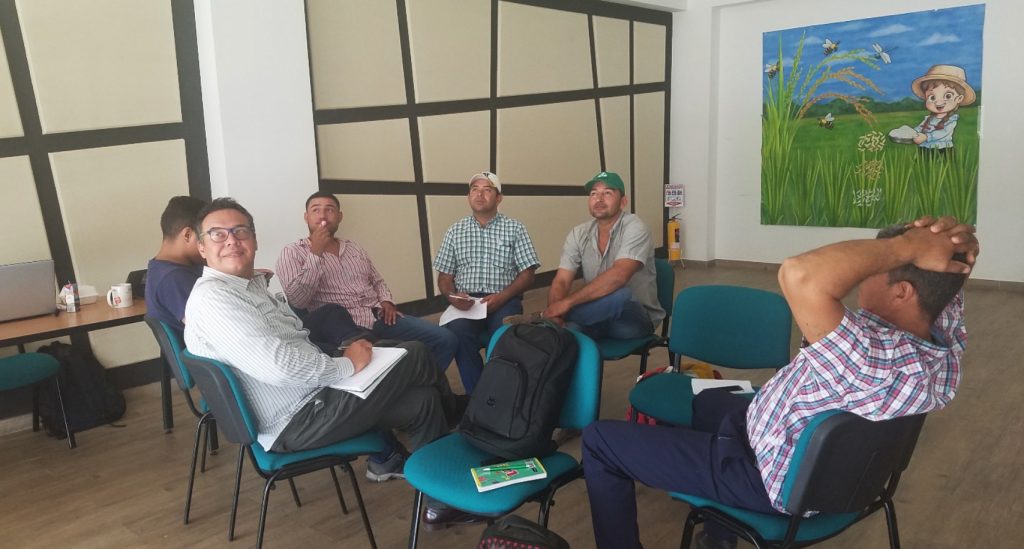Akemi Inamoto Orellana 2019 Field report
2018 CLAG Field Study Award Report:
Akemi Inamoto Orellana, PhD Student, Department of Geography, Syracuse University
Project: Gender and Environmental Governance among Rice Farmers in Tolima and Valle del Cauca, Colombia
The rice farming sector in Colombia has undergone vast changes over the past 20 years. Factors in this change include rapidly changing biophysical conditions associated with climate change; increasing imports of low-cost, foreign-produced rice; and the reconfiguration of land tenure following decades of the armed conflict. In 2006, the government of Colombia signed a bilateral free-trade agreement with the US government (TPA). Between 2012 – when it first went into effect – and 2018 the rice sector was granted a grace period in which tariffs were maintained. Since 2018, however, the tariffs have been gradually decreased, leading to a growth in the low-cost US-produced rice imports. In order to “defend themselves against the threats that surround them”—threats identified as climate change and the TPA—rice farmers have been advised by the National Rice Farmers Federation (Fedearroz for its Spanish acronym) to increase mechanization and adopt climate-smart agricultural (CSA) practices.

These changing circumstances have created space for the redefinition of gender norms in these communities, and, simultaneously, changes in environmental governance processes and structures. Drawing from the feminist political ecology framework, my dissertation research explores the gendered impacts of these transformative processes, with special focus on land and water governance in two rice farming regions of Colombia.
With the CLAG Field Study Award I was able to visit Colombia this summer to begin the first phase of my dissertation research. Between the months of June and August of 2019, I was able to engage in participant observation, conduct semi-structured interviews, workshops, and focus groups, as well as connect with local water and land governance institutions in the departments of Tolima and Valle del Cauca. Research participants included women and men farmers, extension agents, government officials at the environment/sustainability and the agricultural development ministries, irrigation district representatives, and local researchers. During this time, I was also able to access land tenure and water user data through government officials and irrigation districts.
Following this summer’s research, I became interested in carrying out a comparative study analyzing two rice farming regions in Colombia with differing environmental governance structures; the departments of Tolima and Valle de Cauca. Historical and cultural contexts differ across the two departments. Access to water and land as well as the participation of women farmers in the land and water governance structures appeared to vary in both research sites. For example, in Valle del Cauca, where the is no formally organized irrigation district, more women appear to be involved in the communal management of the informal irrigation district. In Tolima, however, although the irrigation districts have been set up since the 1950s, only three women have participated in management positions at the irrigation districts (calledjuntadirectivain the study sites). Regarding land, preliminary data analysis demonstrates that land tenure has indeed changed over the past 20 years, with women ownership increasing over this time period.

For this dissertation research I am collaborating with local researchers at Fedearroz, who serve as the farmers’ representative to the national government and carry out research and development for rice farming in Colombia. Thanks to the CLAG grant I was able to complete this first round of my dissertation research and achieve my goals for the summer. The work completed during this summer will also be used to develop other external grant proposals to support my long-term fieldwork, and dissertation. ¡Gracias CLAG!
Please see the full report for more details.


















